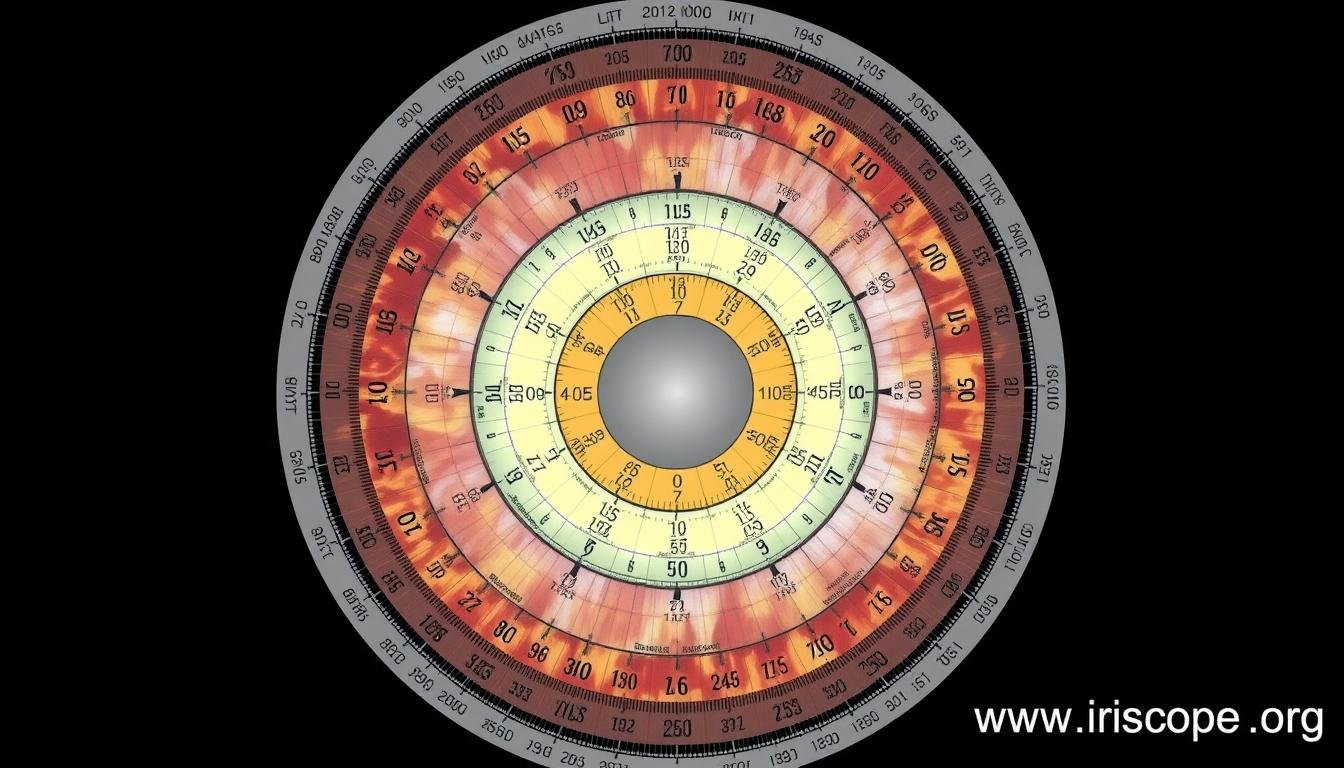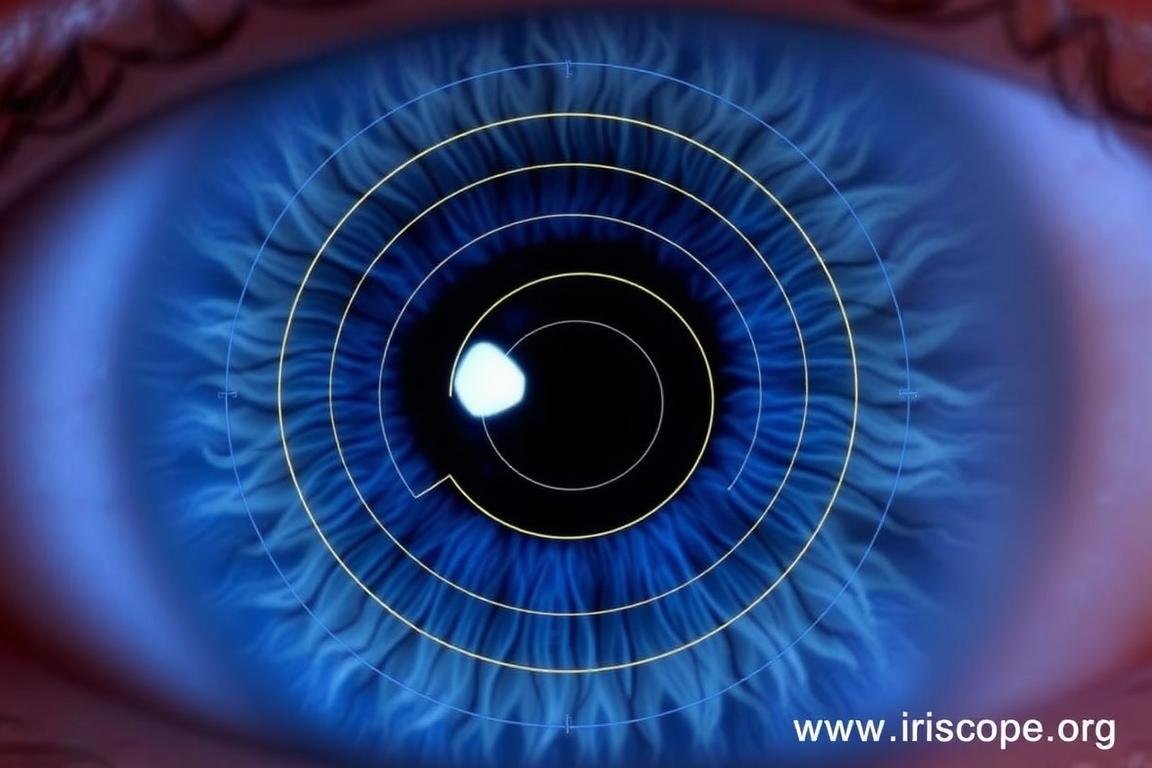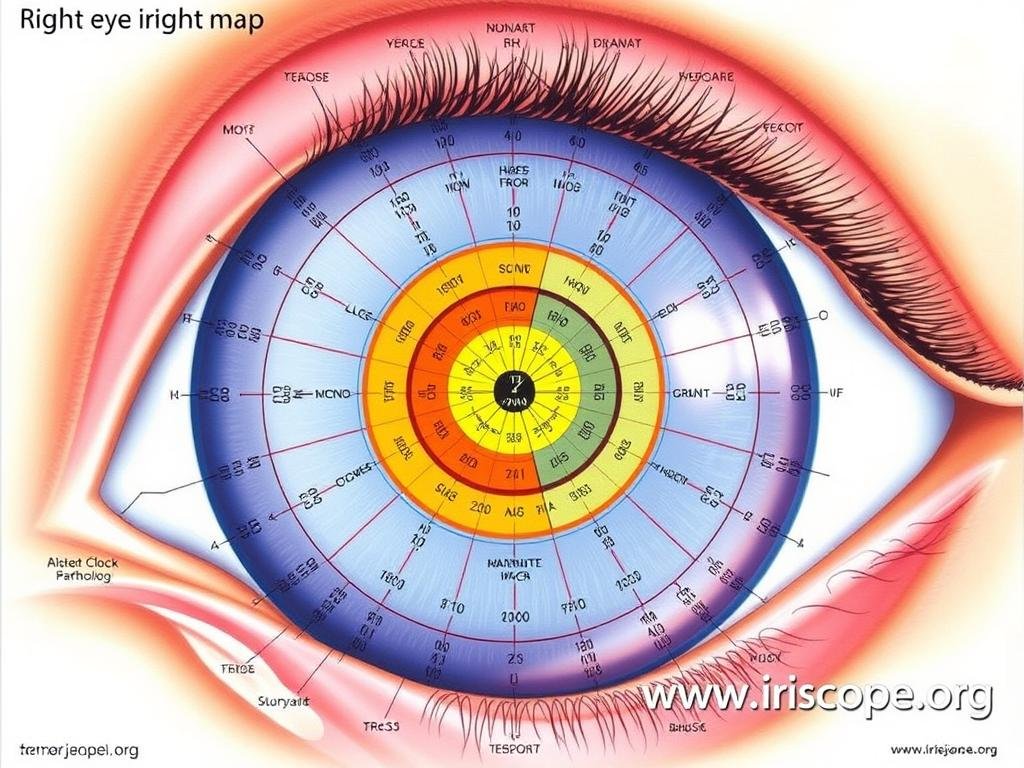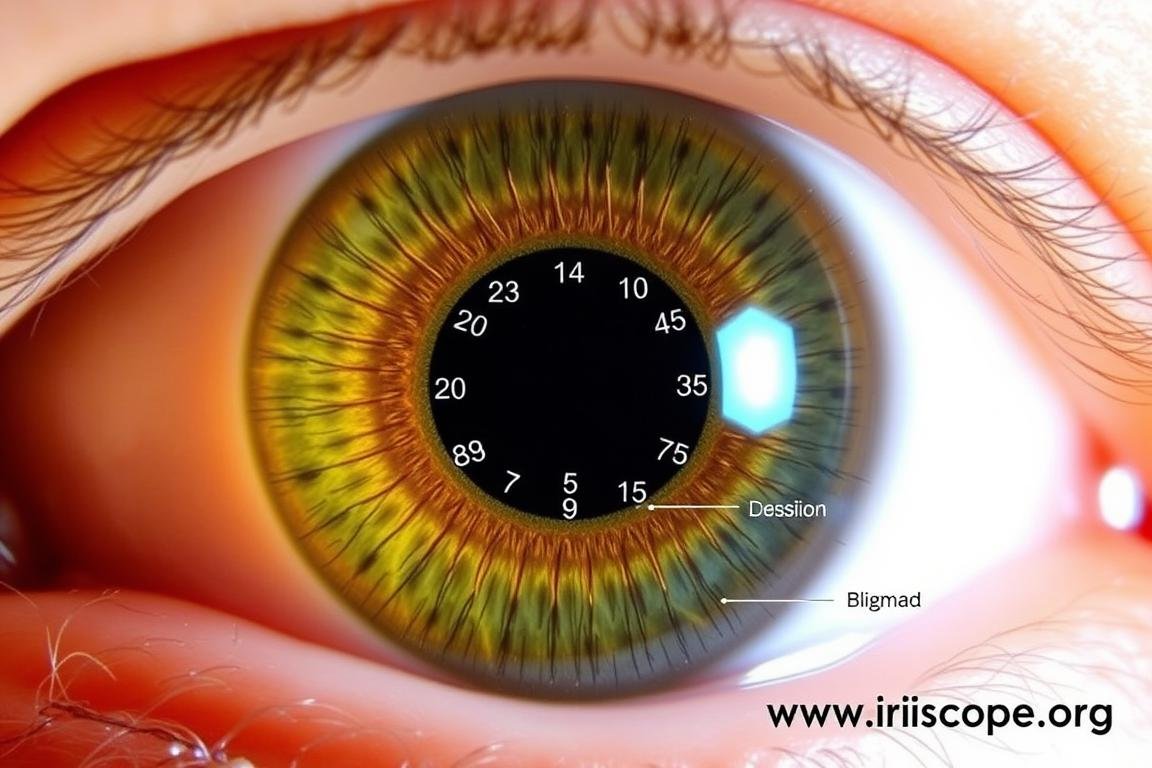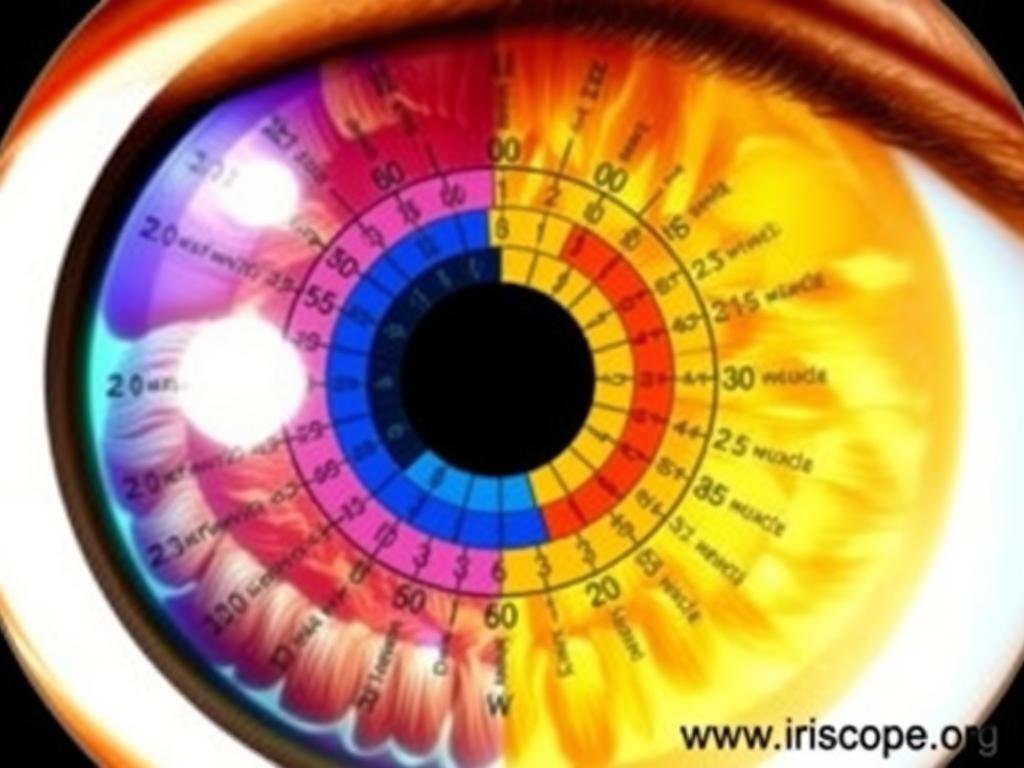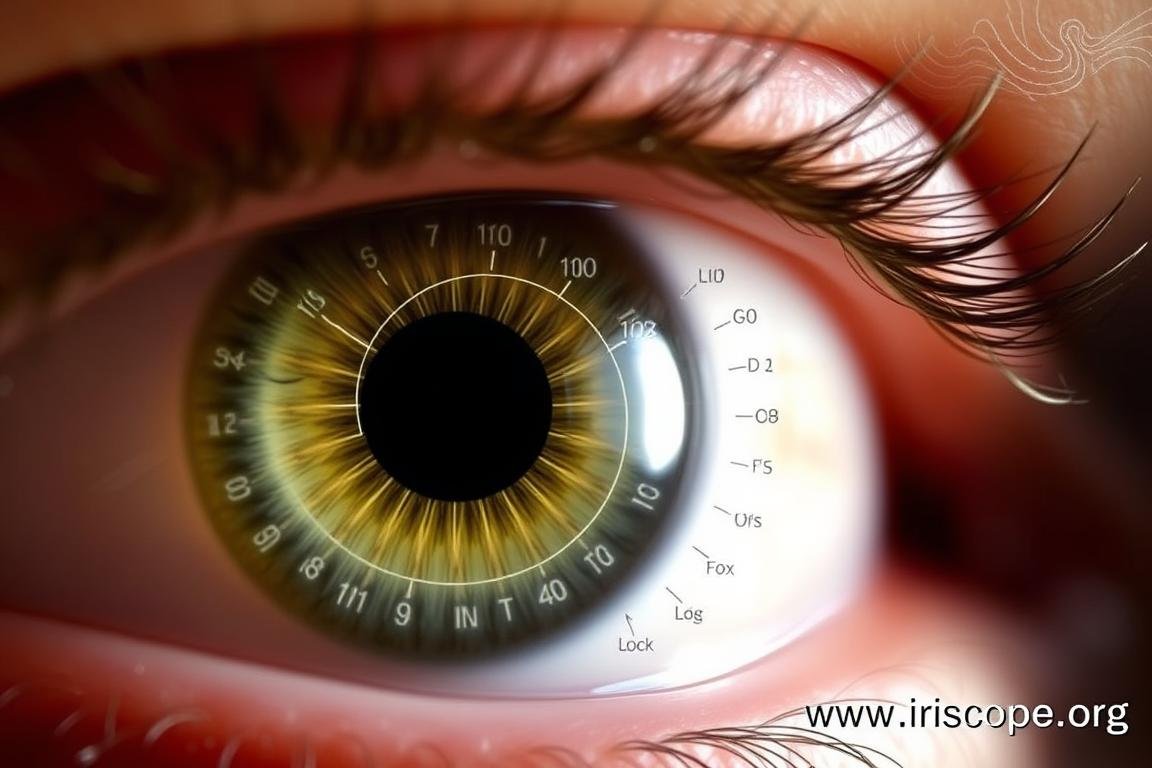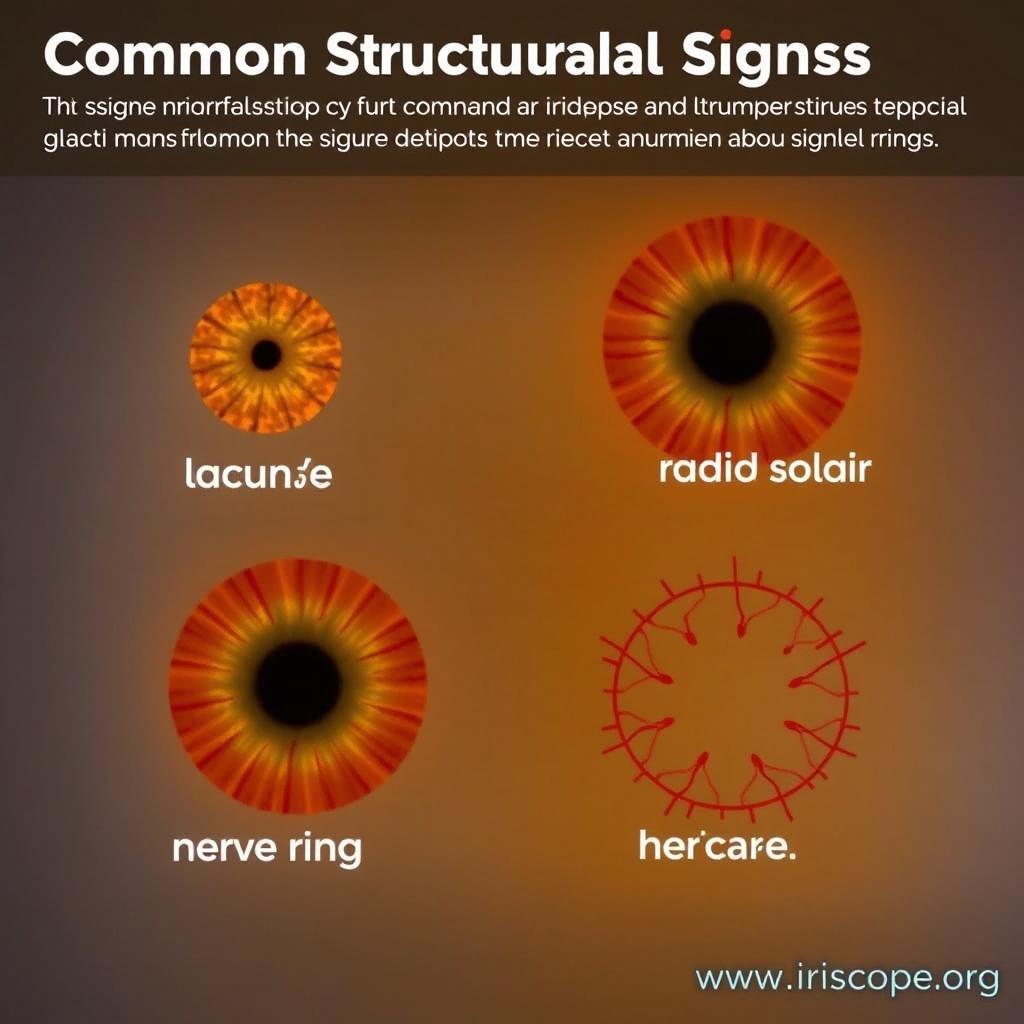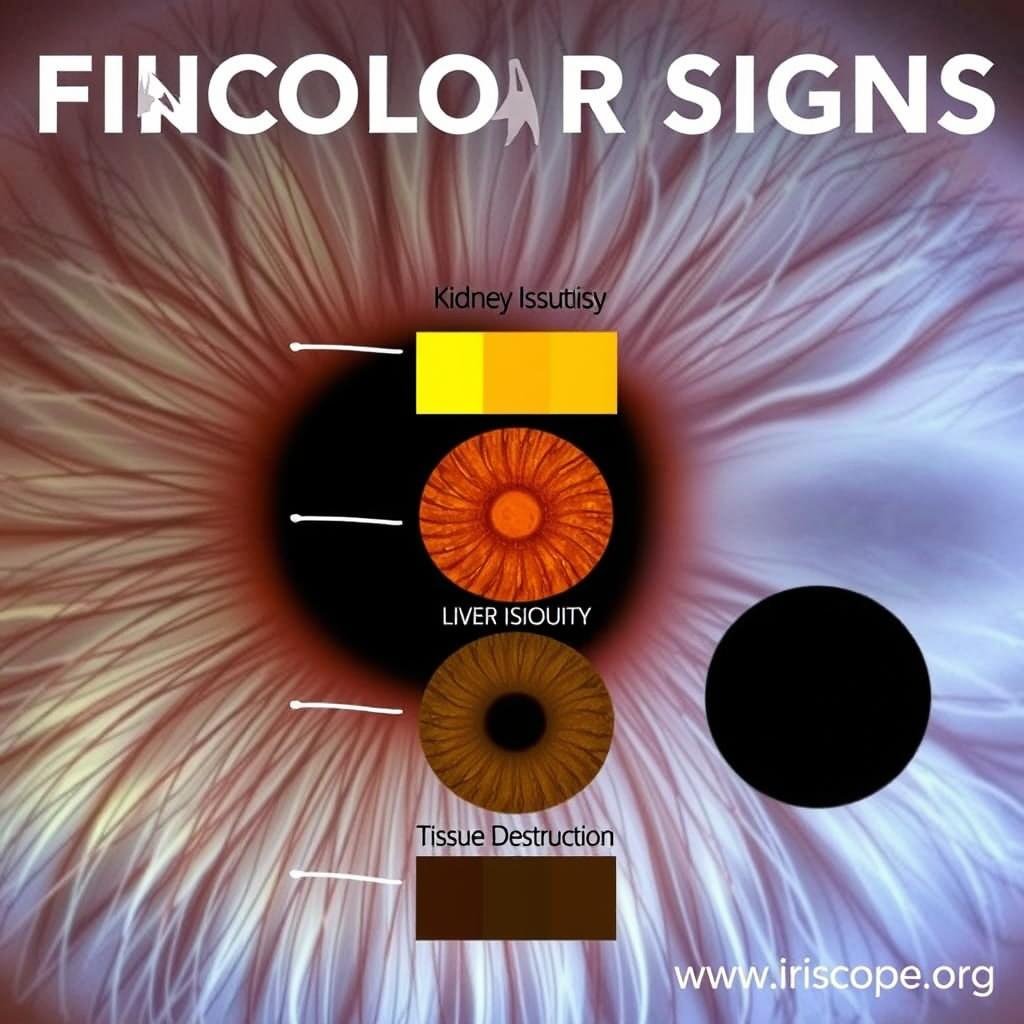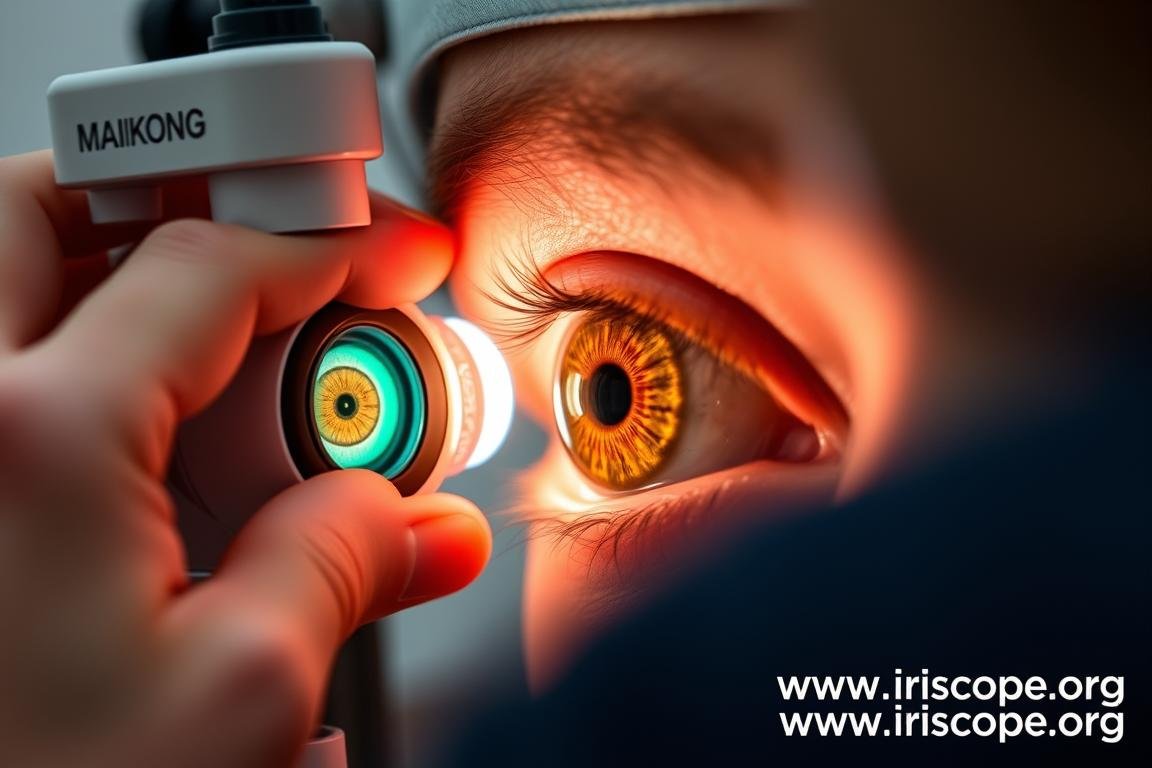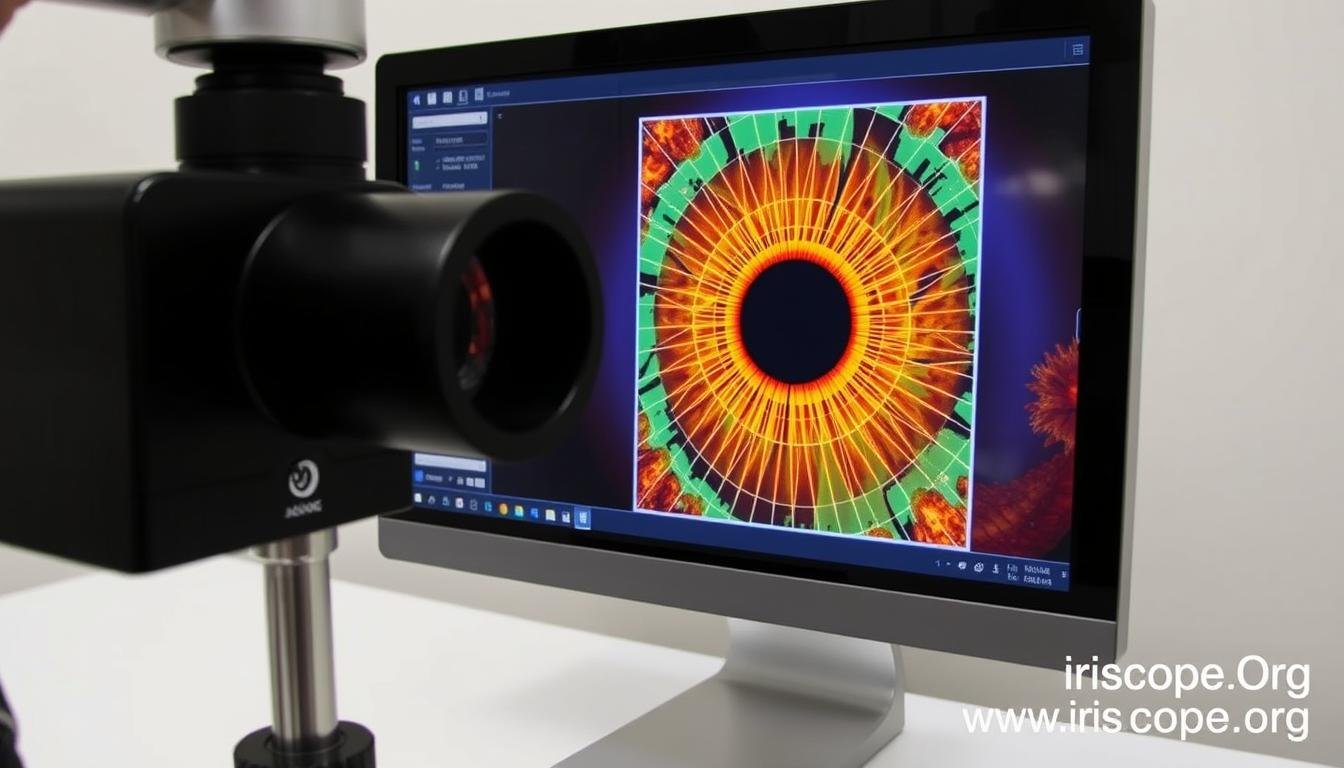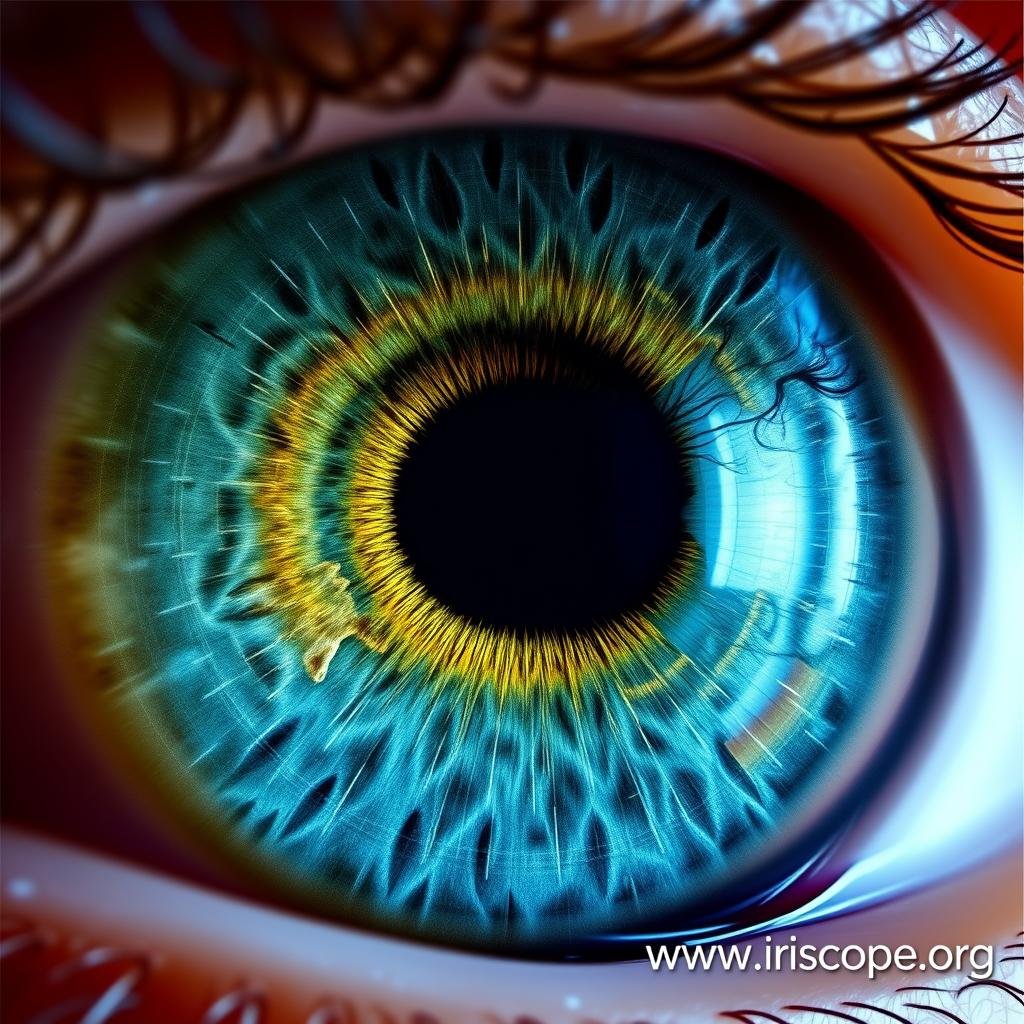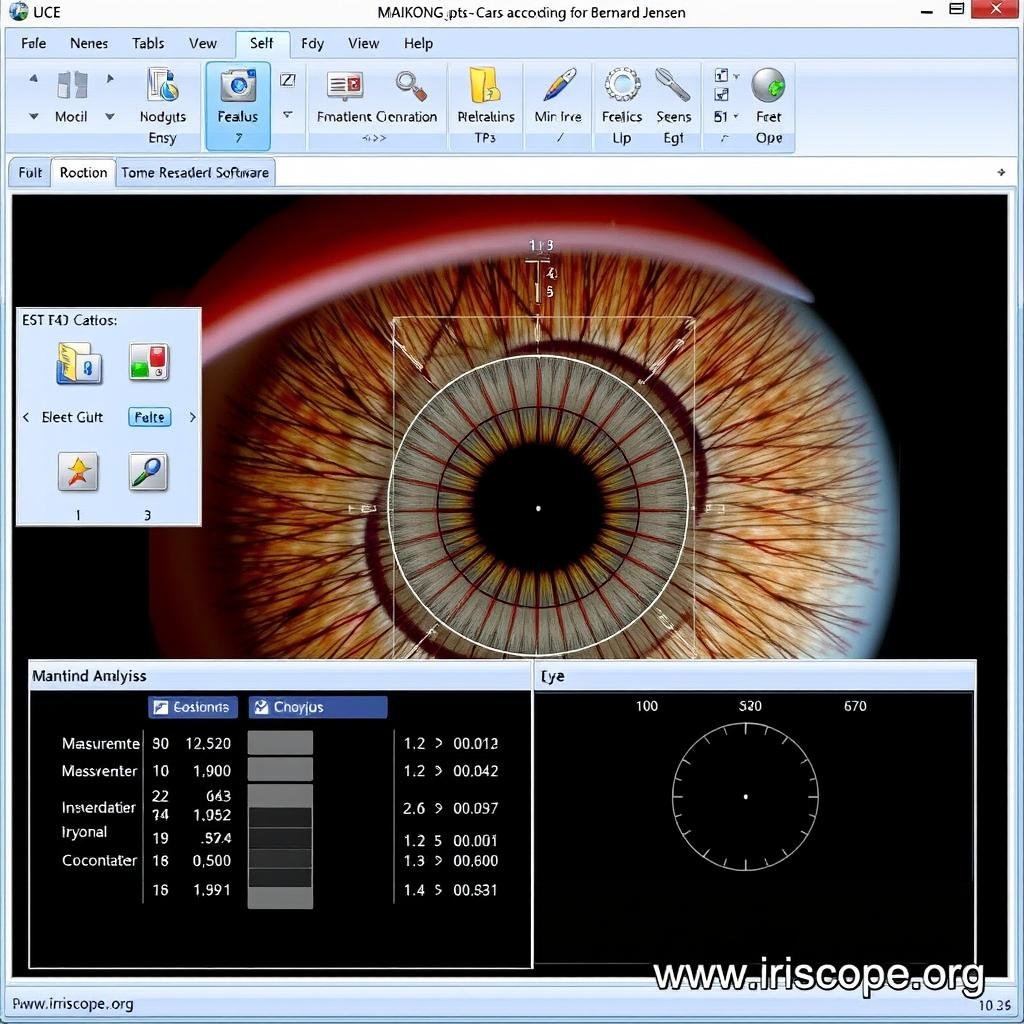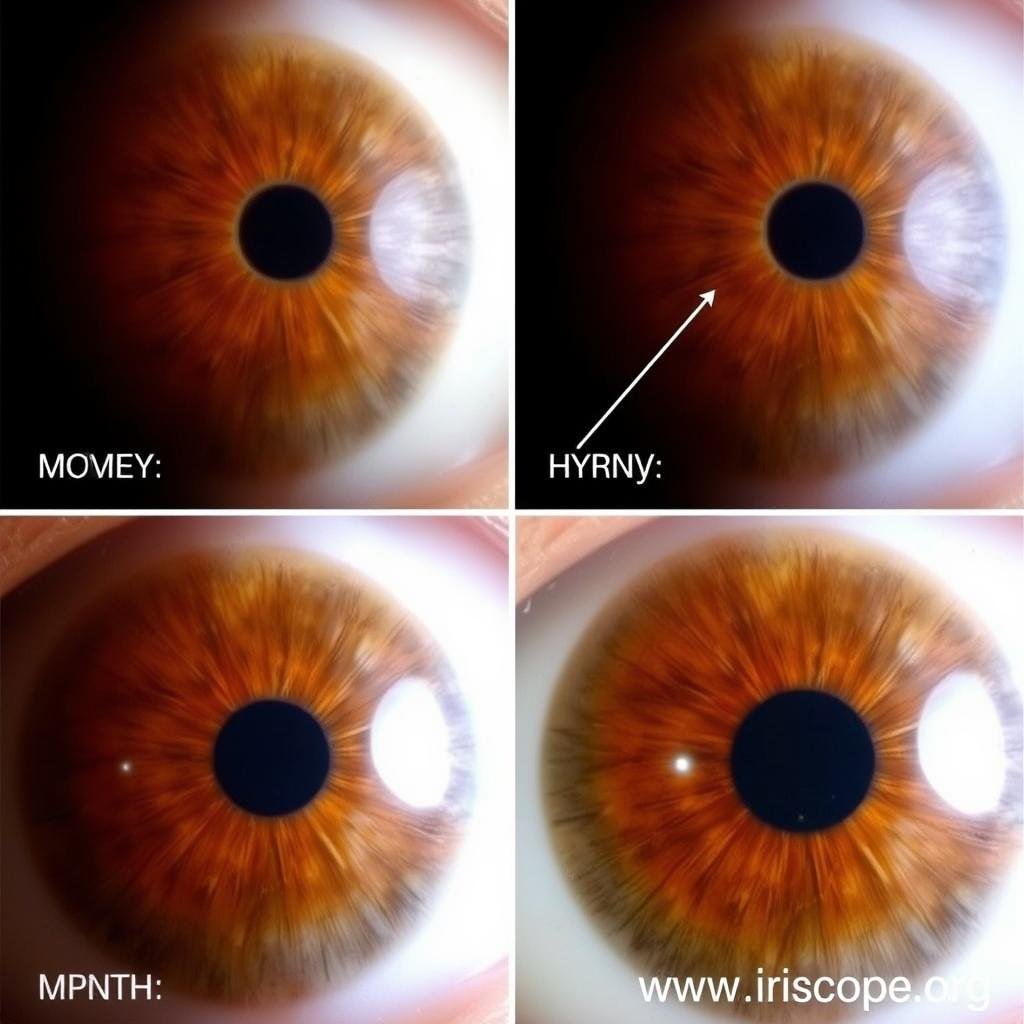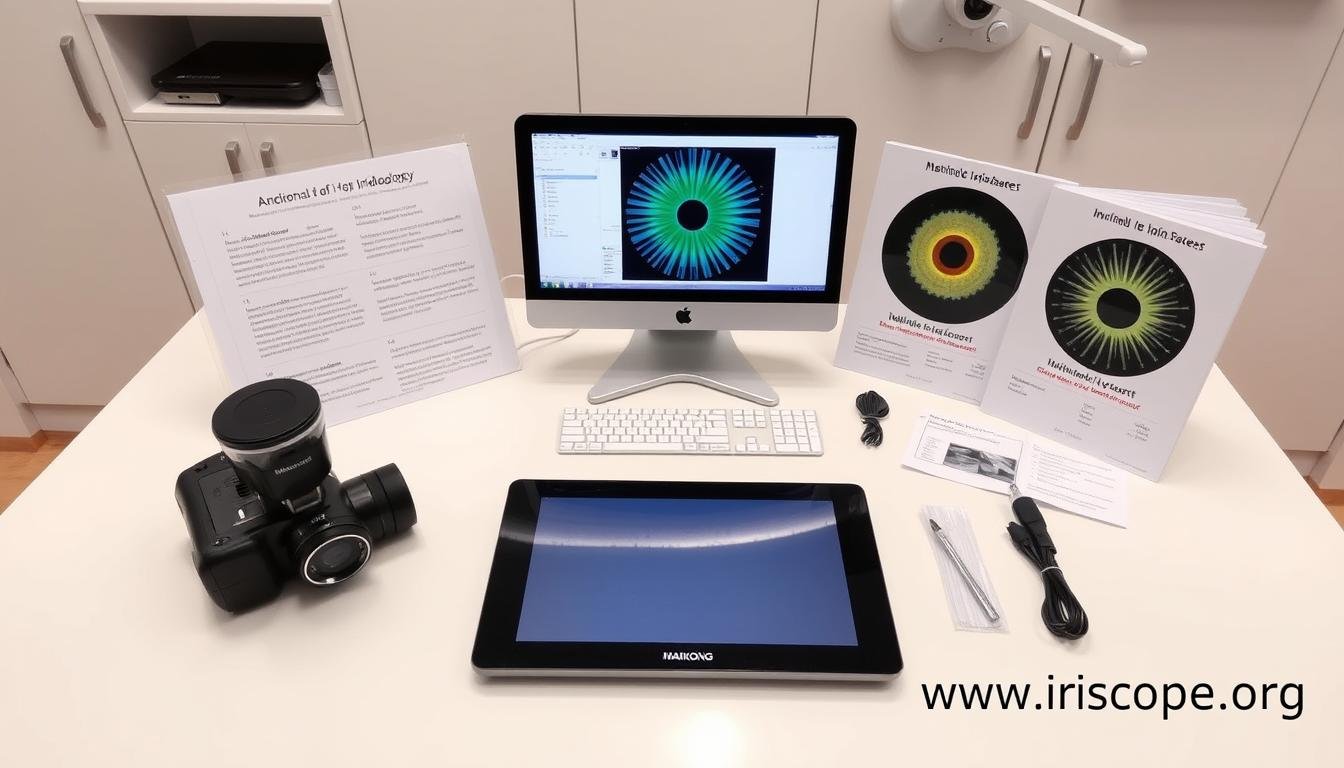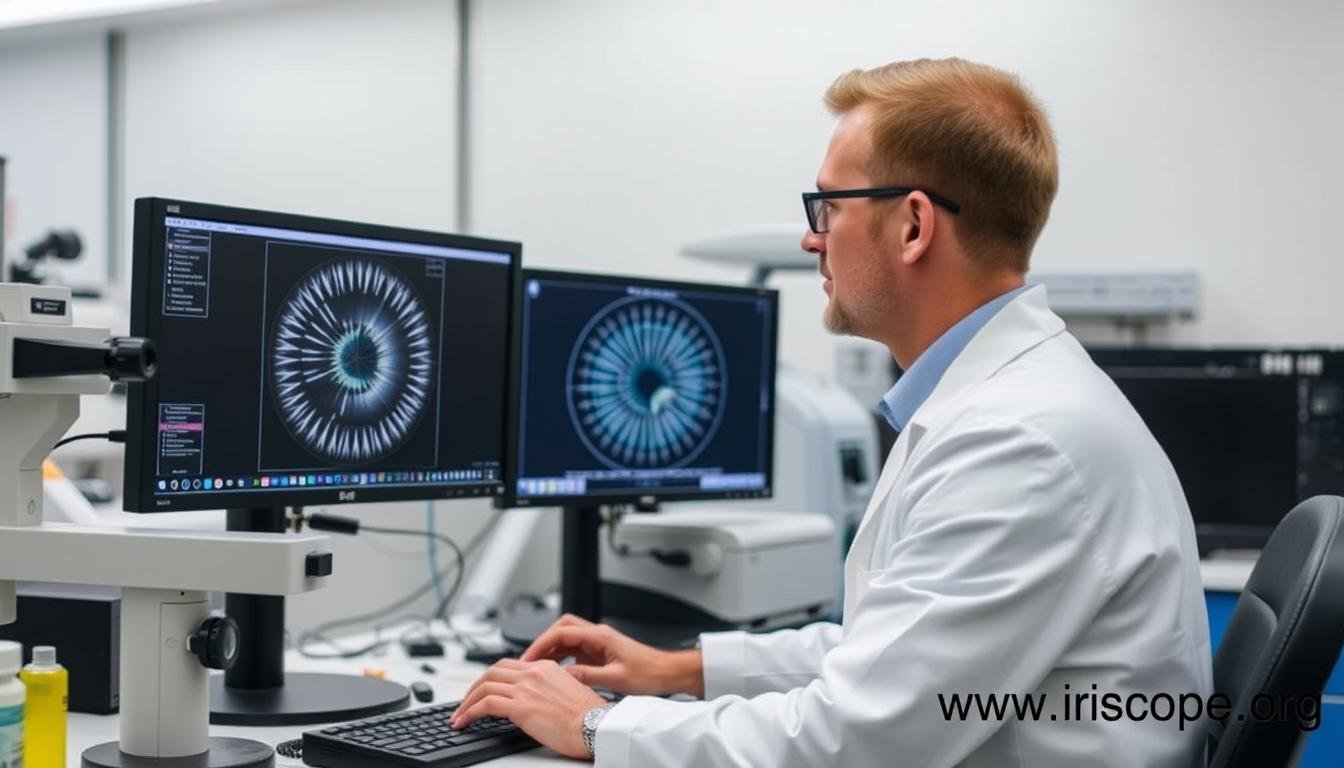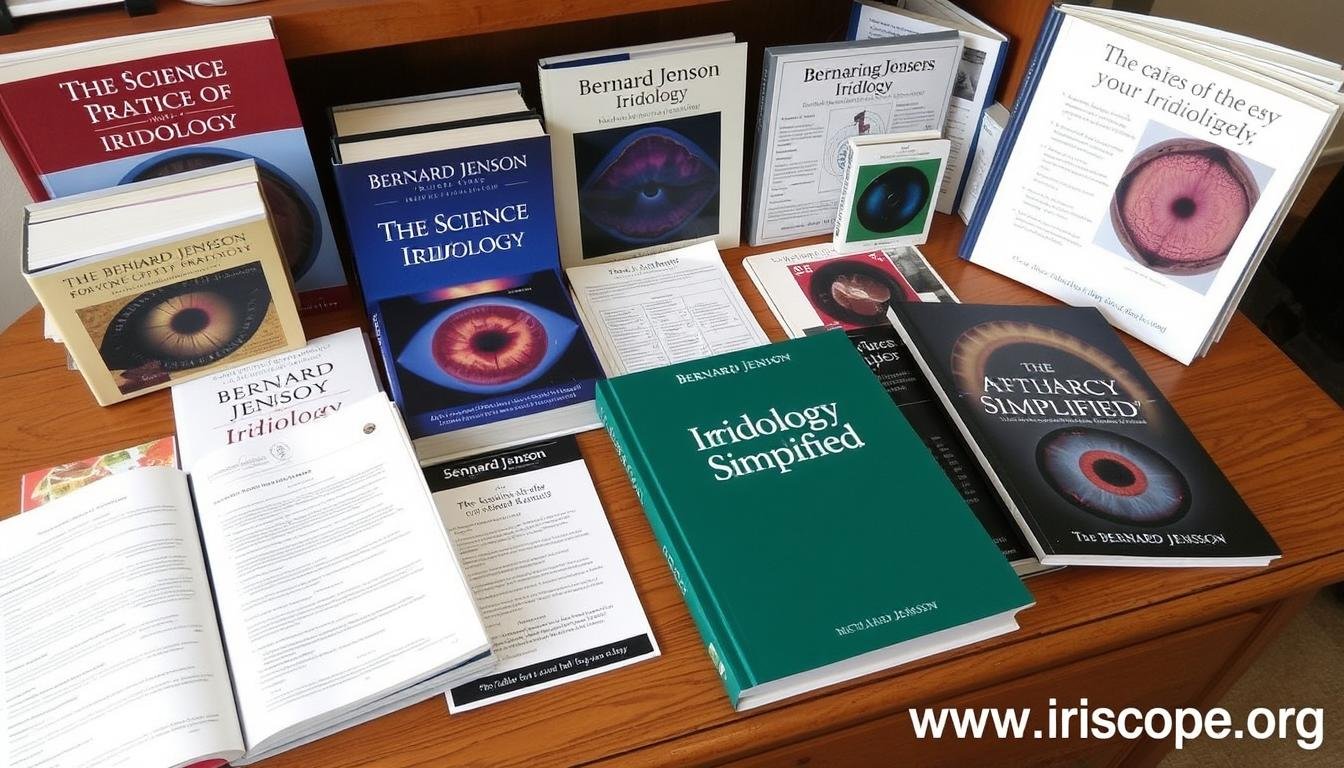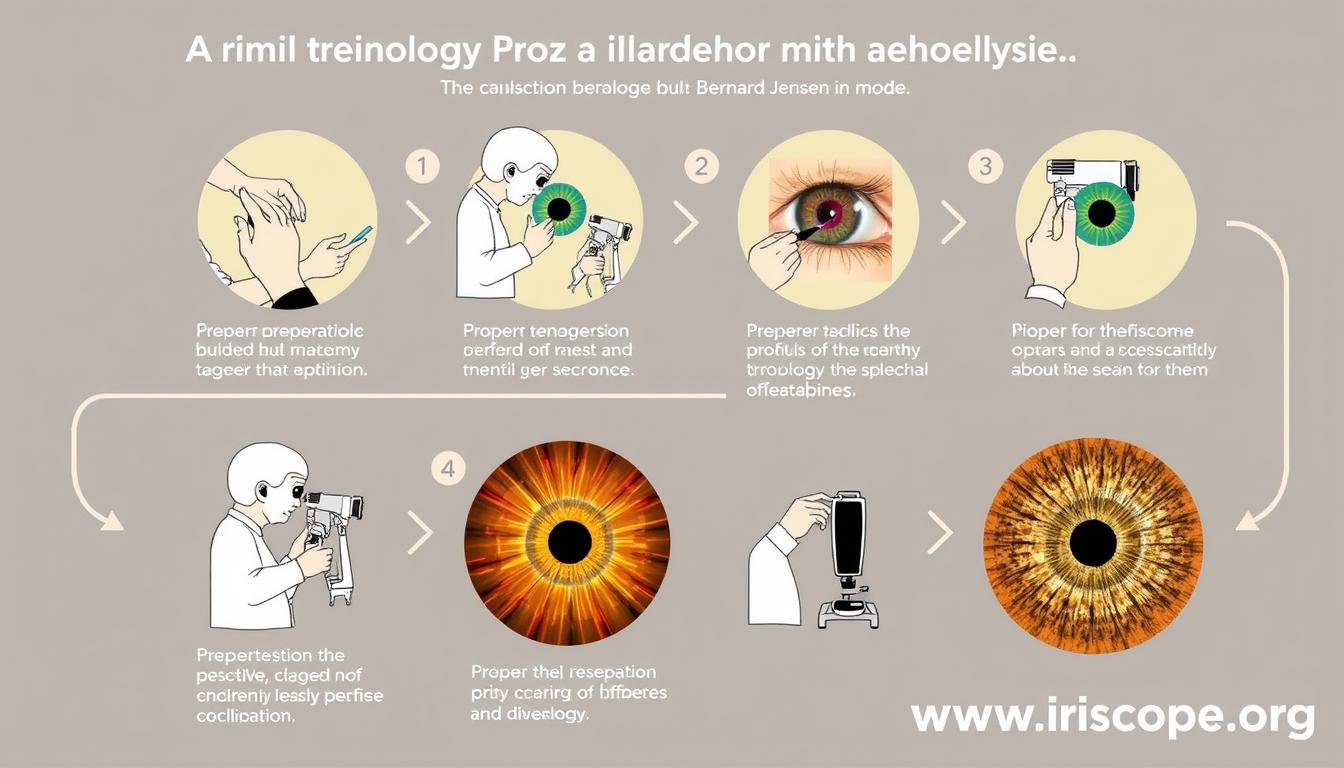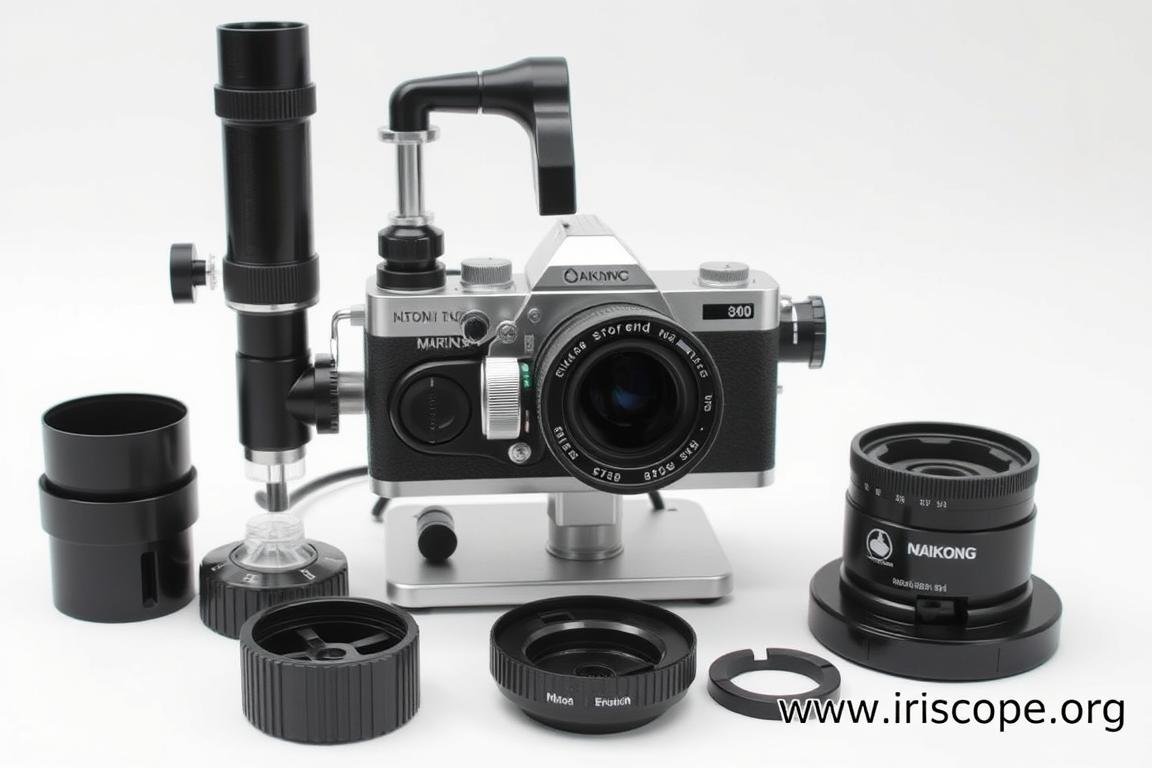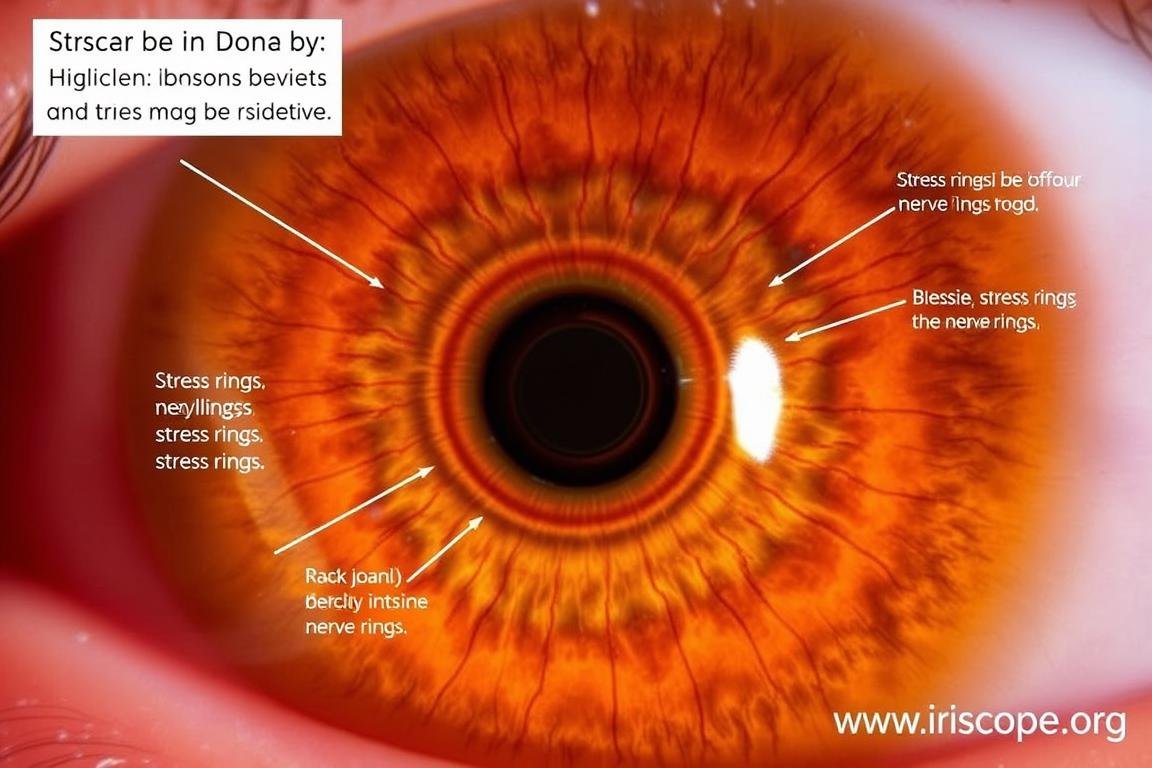Das Erbe von Bernard Jensen’s Iridology Eye Map
Dr. Bernard Jensen (1908-2001) dedicated over 50 years to refining the science and practice of iridology. After recovering from his own health challenges using natural approaches, he became fascinated with how the body reveals its condition through the eyes. His journey began after studying under notable figures including Victor Rocine, who introduced him to natural healing principles.
What distinguished Jensen’s approach was his systematic documentation of iris signs. Through examining over 350,000 eyes throughout his career, he meticulously correlated iris patterns with health conditions, gradually developing what would become the most comprehensive iridology chart system in Western medicine.
“The iris reveals changing conditions of every part and organ of the body. Through various marks, signs, and discolorations in the iris, nature reveals inherited weaknesses and strengths.”
– Dr. Bernard Jensen
Jensen established several nature cure sanitariums in California where he treated thousands of patients with chronic conditions. During this extensive clinical work, he documented the correlation between iris patterns and health outcomes, publishing his findings in numerous books including “Die Wissenschaft und Praxis der Iridologie” Und “Iridology Simplified.”
Entdecken Sie professionelle Iridologie-Ausrüstung
MAIKONG offers state-of-the-art iridology cameras and software based on Bernard Jensen’s methodology with over 20 years of R&D experience.
Entdecken Sie unsere Ausrüstung
Die Struktur verstehen Bernard Jensen Iridology Eye Map


Der Bernard Jensen Iridology Eye Map is organized as a circular chart that divides the iris into zones corresponding to different organs and body systems. This systematic arrangement maps the entire body onto the iris in a logical and comprehensive way. Understanding this organization is fundamental to applying iridology in practice.
The Zonal Approach of Jensen’s Eye Map
Jensen’s map divides the iris into seven concentric zones radiating from the pupil to the outer edge of the iris. Each zone represents different body systems:
- Zone 1 (Magenzone): Die Gegend um die Pupille umgibt und repräsentiert die Verdauungsfunktion
- Zone 2 (Darmzone): Darstellung des kleinen und großen Darms
- Zone 3 (Nährstoffzone): In Bezug auf Stoffwechsel- und Ernährungsprozesse
- Zone 4 (Blutzone): Entsprechend Zirkulation und Blutqualität
- Zone 5 (Muskelzone): Repräsentation von Muskelgeweben und Funktion
- Zone 6 (Skelettzone): Entsprechend Knochen und Skelettstruktur
- Zone 7 (Hautzone): Die äußerste Zone, die Haut und Eliminierung darstellt

The Clock Face Division in Jensen’s System
Beyond the concentric zones, Jensen further divided the iris using a clock face analogy. This division creates specific sections that correspond to particular organs and body regions. This approach allows practitioners to precisely locate areas of concern within the iris.
Wussten Sie? Bernard Jensen’s eye map is unique in its detailed subdivision of major zones into more specific regions, allowing for precise identification of potential health concerns.
The Right Eye in the Bernard Jensen Iridology Eye Map


In Jensen’s system, the right iris primarily reflects the right side of the body. Understanding the specific organ correspondences for each clock position is essential for accurate iris analysis.
| Clock Position (Right Eye) | Corresponding Organ/System | Gesundheitsindikatoren | Potential Concerns |
| 12 Uhr | Rechte Gehirnhälfte (psychologisch) | Mental clarity, cognitive function | Stress, anxiety, mental fatigue |
| 1-2 Uhr | Rechts Gesicht/Hals | Skin health, tension in neck | Headaches, jaw tension, sinus issues |
| 2-3 Uhr | Rechte Hals | Atem- und Halsfunktion | Thyroid imbalance, throat irritation |
| 3-4 Uhr | Rechts oberer Rücken | Spinal health, shoulder muscles | Upper back tension, shoulder pain |
| 4-5 Uhr | Richtiger Magen | Verdauungsfunktion, Säureproduktion | Indigestion, stomach ulcers |
| 5-6 Uhr | Rechte Beckenregion | Fortpflanzungsorgane, Harnsystem | Prostate issues, urinary infections |
| 6-7 Uhr | Richtiger unterer Rücken/Beine | Musculoskeletal health, circulation | Sciatica, leg cramps, lower back pain |
| 7-8 Uhr | Richtige Niere | Kidney function, fluid balance | Kidney stones, dehydration |
| 8-9 Uhr | Rechte Lungen | Atemgesundheit, Lungenkapazität | Asthma, bronchitis, breathing issues |
| 9-10 Uhr | Recht Herz | Cardiovascular health | Heart function, circulation issues |
| 10-11 Uhr | Rechte Verdauungsorgane | Liver, gallbladder function | Liver congestion, digestive issues |
| 11-12 Uhr | Rechte Bauchspeicheldrüse/Milz | Blood sugar regulation, immunity | Diabetes, immune system weakness |

Dieses detaillierte Kartierungssystem ermöglicht es Praktikern, bestimmte Irismarkierungen mit bestimmten Organen oder Systemen zu korrelieren und ein umfassendes Bild des Zustands des Körpers gemäß den Iridologieprinzipien zu erstellen.
The Left Eye in the Bernard Jensen Iridology Eye Map

In Jensen’s system, the left iris primarily reflects the left side of the body. The mapping follows a similar pattern to the right eye but corresponds to organs and systems on the left side.
| Uhrposition (linkes Auge) | Corresponding Organ/System | Gesundheitsindikatoren | Potential Concerns |
| 12 Uhr | Linke Gehirnhälfte (psychologisch) | Emotional state, mental health | Depression, anxiety, emotional imbalance |
| 1-2 Uhr | Left neck | Lymphatic drainage, neck mobility | Neck stiffness, lymphatic congestion |
| 2-3 Uhr | Left lung | Respiratory function, oxygen exchange | Respiratory infections, reduced capacity |
| 3-4 Uhr | Left thorax | Chest and upper back structure | Thoracic spine issues, rib dysfunction |
| 4-5 Uhr | Left upper abdomen | Stomach, spleen function | Digestive issues, spleen congestion |
| 5-6 Uhr | Left lower abdomen | Small intestine, colon function | Intestinal inflammation, absorption issues |
| 6-7 Uhr | Left pelvic | Reproductive organs, elimination | Menstrual issues, elimination problems |
| 7-8 Uhr | Left lower back | Lumbar spine, sacrum function | Lower back pain, sacroiliac issues |
| 8-9 Uhr | Linker oberer Rücken | Spine, shoulder blade area | Upper back tension, shoulder issues |
| 9-10 Uhr | Linker Hals | Throat, thyroid function | Thyroid imbalance, throat irritation |
| 10-11 Uhr | Left face | Facial nerve function, sinuses | Sinus congestion, facial tension |
| 11-12 Uhr | Left cerebrum | Brain function, cognitive abilities | Memory issues, cognitive stress |

Interpreting Iris Signs Using the Bernard Jensen Iridology Eye Map
Bernard Jensen identified numerous iris signs that indicate different health conditions. His detailed classification system helps practitioners recognize patterns that may suggest imbalances or weaknesses in specific body areas.
Key Iris Markings in Jensen’s Eye Map
Strukturzeichen

- Lacunae: Geschlossene dunkle Bereiche, die Gewebeschäden anzeigen
- Kryptionen: Offene Räume in der Irisfaserstruktur
- Solaris Radius; Sprachartige Linien, die nach außen strahlen
- Nervenringe: Kreisförmige Linien, die nervöse Spannungen anzeigen
Farbschilder

- Weiß: Entzündung oder akute Aktivität
- Gelb: Nieren- oder Harnbekämpfung
- Orange: Leber- oder Gallenblasenprobleme
- Braun: Leberungleichgewicht oder Toxizität
- Schwarz: Schwere Gewebezerstörung
Schülerzeichen

- Abgeflachte Pupille: Möglicher Stress des Nervensystems
- Erweiterter Schüler: Nebennierenermüdung oder Erschöpfung
- Eingeschränkter Schüler: Reizung oder Stimulation
- Pupille Flare: Schwäche des Verdauungssystems
Jensen emphasized that these signs should not be interpreted in isolation but as part of a comprehensive assessment. He taught that the iris reveals constitutional strengths and weaknesses rather than providing specific disease diagnoses. This holistic approach aligns with his broader philosophy of treating the whole person rather than just symptoms.
Wichtig: Bernard Jensen stressed that iridology is not meant to diagnose specific diseases but rather to identify areas of weakness or strength in the body. It should be used as part of a comprehensive health assessment approach.
The Four Levels of Tissue Change in Jensen’s System

| Level | Iris Zeichen | Interpretation |
| Akut | White fibers, inflammation signs | Active inflammation, body fighting condition |
| Subakut | Gray-white areas | Chronic inflammation, less active |
| Chronisch | Darker markings, lesions | Long-term tissue damage or weakness |
| Degenerativ | Black lesions, closed lacunae | Tissue destruction, organ failure |
Verbessern Sie Ihre Iridologie-Praxis
MAIKONG offers professional iridology cameras and software designed to accurately capture and analyze iris signs according to Bernard Jensen’s methodology.
Sehen Sie sich unsere Ausrüstung an
Praktische Anwendungen der Bernard Jensen Iridology Eye Map
The Bernard Jensen iridology eye map serves as more than just a diagnostic tool—it provides a framework for understanding the body’s interconnected systems and guiding holistic health approaches.

How Practitioners Apply Jensen’s Eye Map Today
Modern practitioners use Bernard Jensen’s eye map in several key ways:
- Verfassungsbewertung: Identifizierung inhärenter Stärken und Schwächen in Körpersystemen
- Vorbeugende Anleitung: Dies schließen unterstützende Maßnahmen für potenziell gefährdete Bereiche vor
- Ernährungsplanung: Entwicklung gezielter Ernährungsprotokolle basierend auf IRIS -Indikationen
- Fortschrittsüberwachung: Verfolgung von Veränderungen der Iris -Muster im Laufe der Zeit im Laufe der Gesundheit, wenn sich die Gesundheit verbessert
- Kundenerziehung: Nutzung der visuellen Natur der Iridologie, um Kunden zu helfen, ihre Gesundheit zu verstehen
Case Example: Using Jensen’s Eye Map in Practice
“When I first examined Sarah’s iris, I noticed distinct lacunae in the intestinal zone at approximately 7 o’clock in her right iris. Following Bernard Jensen’s eye map, this indicated potential weakness in the ileocecal valve area. After discussing her symptoms of periodic digestive discomfort, we developed a targeted nutritional protocol. Six months later, not only had her symptoms improved, but the iris markings had become less pronounced—exactly as Dr. Jensen’s work predicted.”
- Dr. Elizabeth Chen, Iridologie -Praktiker
This case exemplifies how Jensen’s detailed mapping system continues to guide practitioners in developing personalized health protocols based on iris analysis.
How accurate is Bernard Jensen’s iridology eye map for health assessment?
Jensen’s eye map is best viewed as a tool for identifying potential areas of weakness or imbalance rather than diagnosing specific diseases. Its accuracy depends on the practitioner’s skill and experience in interpretation. Many practitioners report valuable insights when used as part of a comprehensive health assessment approach.
How does Bernard Jensen’s eye map differ from other iridology systems?
Jensen’s eye map is more detailed and systematically organized than many other systems. While European iridology charts (particularly German systems) may use different zone mappings, Jensen’s American approach is distinguished by its comprehensive organ mapping and practical clinical application focus.
Can I learn to use Bernard Jensen’s iridology eye map on my own?
Während Jensens Bücher hervorragende Informationen liefern, erfordert die ordnungsgemäße Anwendung seines Iridologie -Systems in der Regel eine formale Schulung. Die Nuancen der IRIS -Interpretation werden am besten durch geführte Unterricht von erfahrenen Praktikern gelernt, die die richtige Technik und Interpretation nachweisen können.
Modern Technology and the Bernard Jensen Iridology Eye Map
While Bernard Jensen’s original eye map remains foundational, technology has enhanced how practitioners apply his methodology in modern practice.

Digital Enhancements to Jensen’s Methodology
Hochauflösende Bildgebung

Modern digital cameras capture iris details invisible to the naked eye, allowing for more precise application of Jensen’s mapping system.
Softwareanalyse

Specialized software can overlay Jensen’s eye map onto digital iris photos, helping practitioners identify and document findings more accurately.
Vergleichende Analyse

Digital records allow practitioners to track subtle changes in iris patterns over time, providing objective evidence of health improvements.
Wussten Sie? Bernard Jensen documented over 1,000 iris photographs throughout his career, creating one of the most extensive iridology research collections of his time. Today’s digital technology allows practitioners to build even more comprehensive databases.
MAIKONG’s Advanced Iridology Equipment
At MAIKONG, we’ve combined over 20 years of R&D experience with Bernard Jensen’s proven methodology to create state-of-the-art iridology equipment that enhances the practitioner’s ability to apply Jensen’s eye map with precision.
Professional Iridology Cameras
- High-resolution imaging for detailed iris analysis
- Ergonomic design for practitioner and client comfort
- Adjustable magnification to capture subtle iris details
- LED illumination that doesn’t cause pupil contraction
- Durable construction for clinical longevity
Comprehensive Iridology Software
- Jensen’s eye map overlay for precise analysis
- Client database for tracking changes over time
- Customizable reporting features
- Educational resources for practitioners
- Regular updates incorporating latest research

Experience MAIKONG’s Professional Iridology Systems
Our equipment combines Bernard Jensen’s proven methodology with cutting-edge technology for accurate iris analysis.
Kontaktieren Sie uns über WhatsApp
Scientific Perspectives on the Bernard Jensen Iridology Eye Map
The scientific community has varying perspectives on iridology as developed by Bernard Jensen. While conventional medicine has been skeptical of some claims, research continues to explore potential correlations between iris patterns and health conditions.
Beweise unterstützen
- Einige Studien zeigen Korrelationen zwischen IRIS -Mustern und genetischen Veranlagungen
- Die Forschung zur Irisstruktur als potenzieller Biomarker entwickelt sich weiter
- Klinische Erfahrung von Praktikern meldet positive Ergebnisse
- Nicht-invasive Natur macht es zu einem sicheren komplementären Bewertungsinstrument
- Growing interest in integrative approaches to health assessment
Einschränkungen
- Begrenzte groß angelegte kontrollierte Studien, die alle Aspekte der Iridologie validieren
- Variation der Interpretation der Praktiker kann die Konsistenz beeinflussen
- Nicht beabsichtigt, die konventionelle medizinische Diagnose zu ersetzen
- Einige Korrelationen können eher zufällig als kausal sein
- Need for standardized training and certification
Bernard Jensen himself acknowledged that iridology should be used as part of a comprehensive health assessment rather than as a standalone diagnostic tool. This balanced perspective continues to guide responsible practitioners who use his methodology.

“The most valuable aspect of Jensen’s work was his systematic approach to documenting correlations between iris signs and health conditions. While more research is needed, his methodical documentation provides a foundation for further scientific investigation.”
— Dr. Michael Roberts, Integrative Medicine Researcher
Resources for Learning the Bernard Jensen Iridology Eye Map
For those interested in learning more about Bernard Jensen’s iridology system, several valuable resources are available:

Essentielle Bücher
- Die Wissenschaft und Praxis der Iridologie – Jensen’s foundational text
- Iridologie vereinfacht – An accessible introduction to his system
- Iridologie: Die Wissenschaft und Praxis in den Heilkunst – Advanced concepts
- Dr. Jensens Leitfaden zur besseren Darmpflege – Complementary health approaches
Schulungsprogramme
- Bernard Jensen Internationale Zertifizierungskurse
- Programme für internationale Iridologie -Praktikervereinigung
- Online -Kurse basierend auf der Methodik von Jensen
- Workshops, die von zertifizierten Jensen -Methodenlehrern angeboten werden
Werkzeuge und Ausrüstung
- Professionelle Iriskameras
- Gedruckte Jensen Iridology -Diagramme
- Digitale Analyse -Software
- Vergrößerungsausrüstung
- Referenzmaterial und Fallstudien
Complete Iridology Solutions from MAIKONG
We offer comprehensive iridology equipment, software, charts, and educational resources based on Bernard Jensen’s methodology.
Practical Guide to Using the Bernard Jensen Iridology Eye Map
For practitioners and students looking to apply Bernard Jensen’s iridology eye map in practice, following a systematic approach ensures accurate and consistent results.

Step-by-Step Examination Process
- Richtige Beleuchtung: Ensure consistent, natural lighting that doesn’t cause pupil contraction
- Client Positioning: Position the client comfortably with head stabilized
- Equipment Setup: Prepare your iridology camera or magnification device
- Capture Images: Take clear photographs of both the left and right iris
- Apply Jensen’s Map: Overlay or reference Jensen’s eye map for analysis
- Document Findings: Record all observations systematically
- Correlate with Health History: Connect iris signs with client’s health concerns
- Develop Recommendations: Create a holistic plan based on findings
- Follow-Up Assessment: Track changes over time with subsequent examinations
Essential Equipment for Applying Jensen’s Methodology
To properly apply Bernard Jensen’s iridology eye map, practitioners need reliable equipment that provides clear, detailed views of the iris. MAIKONG’s professional iridology systems include:
- High-resolution iridology cameras with proper magnification
- Specialized software with Jensen’s eye map overlay
- Printed reference charts for consultation during analysis
- Documentation tools for recording and tracking findings
- Educational resources for continuous learning and reference
Wichtiger Hinweis: While iridology can provide valuable insights into potential health patterns, it should always be used as part of a comprehensive health assessment approach. Bernard Jensen emphasized that iridology is not meant to diagnose specific diseases but rather to identify constitutional strengths and weaknesses.
Fallstudien mit dem Bernard Jensen Iridology Eye Map
The following case studies demonstrate how practitioners apply Bernard Jensen’s iridology eye map in real-world clinical settings to identify potential health patterns and develop personalized protocols.
Fallstudie 1: Beurteilung des Verdauungssystems

Client -Profil: 42-year-old female with chronic digestive complaints
Iris -Beobachtungen: Using Jensen’s eye map, the practitioner identified distinct lacunae in the intestinal zone (Zone 2) at approximately 6-7 o’clock in the right iris, corresponding to the ileocecal valve area.
Ansatz: Based on these findings, a nutritional protocol focusing on gut healing and inflammation reduction was implemented.
Ergebnis: After six months, follow-up iris analysis showed reduced intensity of the markings, correlating with significant improvement in digestive symptoms.
Case Study 2: Stress Response Patterns

Client -Profil: 35-year-old male with chronic fatigue and sleep disturbances
Iris -Beobachtungen: Jensen’s eye map helped identify multiple nerve rings (stress rings) throughout both irises, with particular concentration in Zones 4-5.
Ansatz: A comprehensive stress management protocol was developed, including adaptogenic herbs, lifestyle modifications, and relaxation techniques.
Ergebnis: Three-month follow-up showed reduced prominence of nerve rings and significant improvement in energy levels and sleep quality.
“What makes Bernard Jensen’s iridology eye map so valuable in clinical practice is its systematic approach to correlating iris signs with body systems. This allows practitioners to develop targeted, personalized protocols that address the root causes of health imbalances rather than just treating symptoms.”
— Dr. James Wilson, Holistic Health Practitioner
Enhance Your Iridology Practice with MAIKONG
Our professional iridology equipment and software are designed to help you apply Bernard Jensen’s methodology with precision and confidence.
Fordern Sie eine Beratung an
The Enduring Legacy of the Bernard Jensen Iridology Eye Map
The iridology eye map developed by Bernard Jensen represents one of the most significant contributions to natural health assessment in the 20th century. Through meticulous observation and documentation, Jensen created a system that continues to guide practitioners in understanding the complex relationship between iris patterns and bodily health.

While debates about iridology’s scientific standing continue, there’s no denying the impact of Bernard Jensen’s work in advancing holistic approaches to health assessment. His emphasis on treating the whole person rather than isolated symptoms aligns with contemporary integrative medicine principles.
For those interested in exploring this fascinating field, Bernard Jensen’s eye map provides a structured, comprehensive framework that has stood the test of time. Whether you’re a health practitioner seeking additional assessment tools or an individual interested in holistic health approaches, the Jensen iridology system offers valuable insights into the body’s intricate interconnections as revealed through the window of the eyes.
Discover MAIKONG’s Professional Iridology Solutions
With over 20 years of experience, MAIKONG provides state-of-the-art iridology equipment based on Bernard Jensen’s proven methodology.







